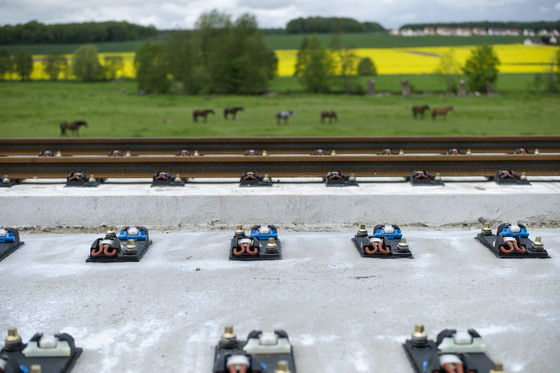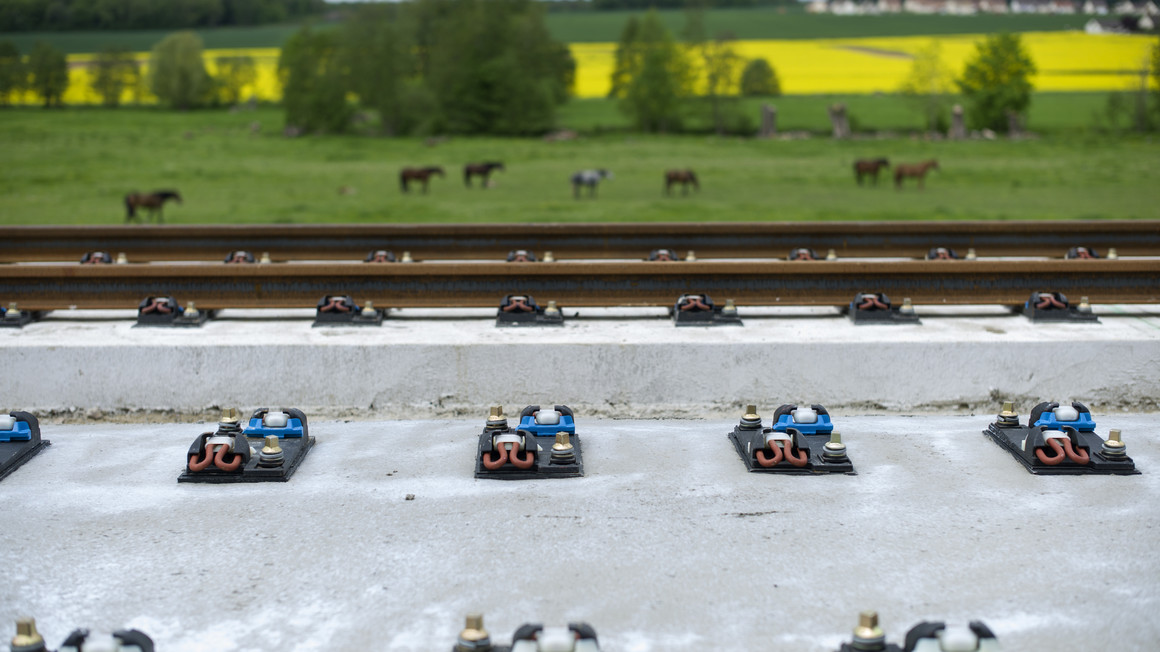
Moving forward our ecodesign policy : 2 new Environmental Product Declarations published
Moving forward our ecodesign policy : 2 new Environmental Product Declarations published

Alstom places environmental preservation at the heart of its development strategy and is creating the conditions necessary for the emergence of true sustainable mobility. Alstom is thus continuously deploying ecodesign on its solutions:
- The company is the first train manufacturer to have announced a commitment to reduce the energy consumption of its transport solutions by 20% by 2020 (compared with baseline 2014) measured in Wh/passenger.km.
- By March 2018 Alstom had reduced the energy consumption of its portfolio by 14% compared to 2014, which puts the Company on track to achieve its objective.
In this context, Alstom publishes two new Environmental Product Declarations (EPDs) on innovative infrastructure and systems:
- NBT is a concrete track system (slab, rails and fasteners) developed for mechanised installation for mainline and high speed lines with optimised lifecycle costs and environmental criteria
- Metro electrification system in 1.5 kV and with our inhouse rigid catenary solution.
-
26Alstom solutions are covered by an ecodesign process
-
32is our objective for 2020
About EPD
The international EPD® system is an independent international organisation for the verification and referencing of company environmental declarations, in accordance with the norm ISO 14025.
An Environmental Product Declaration (EPD) is an independently verified and registered document that communicates transparent and comparable information about the life-cycle environmental impact of products. The declarations have been verified by Bureau Veritas LCIE.
These publications are key achievements allowing us to monitor and improve the sustainability of our electrification and track solutions.
Through the publication of Environmental Product Declarations, Alstom reaffirms its intention to transparently communicate the performance of its solutions. These offer to stakeholders an exhaustive overview of the environmental impacts throughout the product life-cycle. In 2017, Alstom prepared three major publications: Urbalis Fluence Metro Signalling; Metro electrification through rigid catenary; and Concrete-bed Mainline Track.
Learn more about our ecodesign policy and published EPDs:
Ecodesign at Alstom
Alstom’s ecodesign concept seeks to develop environmentally-friendly solutions by monitoring and reducing their environmental impact. This concept is based on three essential elements: a multi-criteria approach to life-cycle thinking; consideration of customer and stakeholder expectations; and continuous improvement. The priorities set in Alstom’s ecodesign policy focus on the:
- energy efficiency of rail transport systems;
- use of clean, recyclable, and natural materials;
- reduction of noise and vibrations;
- reduction of air emissions;
- end-of-life management of products, particularly in maintenance activities.
This policy is embedded at the heart of the group’s design activities and its environmental management system (based on ISO 14001). It is deployed, with the support of a network of more than 100 experts (ecodesigners, acoustics experts, materials experts, energy engineers, etc.), following the ecodesign standard.
Through the publication of Environmental Product Declarations, Alstom reaffirms its intention to transparently communicate the performance of its solutions. These offer to stakeholders an exhaustive overview of the environmental impacts throughout the product life-cycle. In 2017, Alstom prepared three major publications: Urbalis Fluence Metro Signalling; Metro electrification through rigid catenary; and Concrete-bed Mainline Track.


